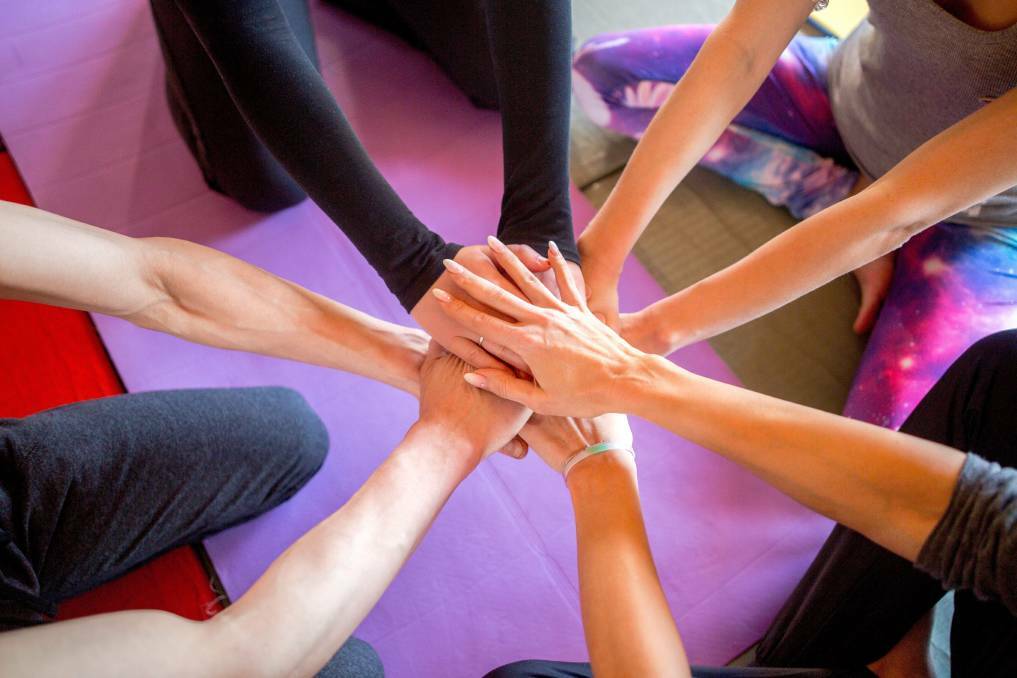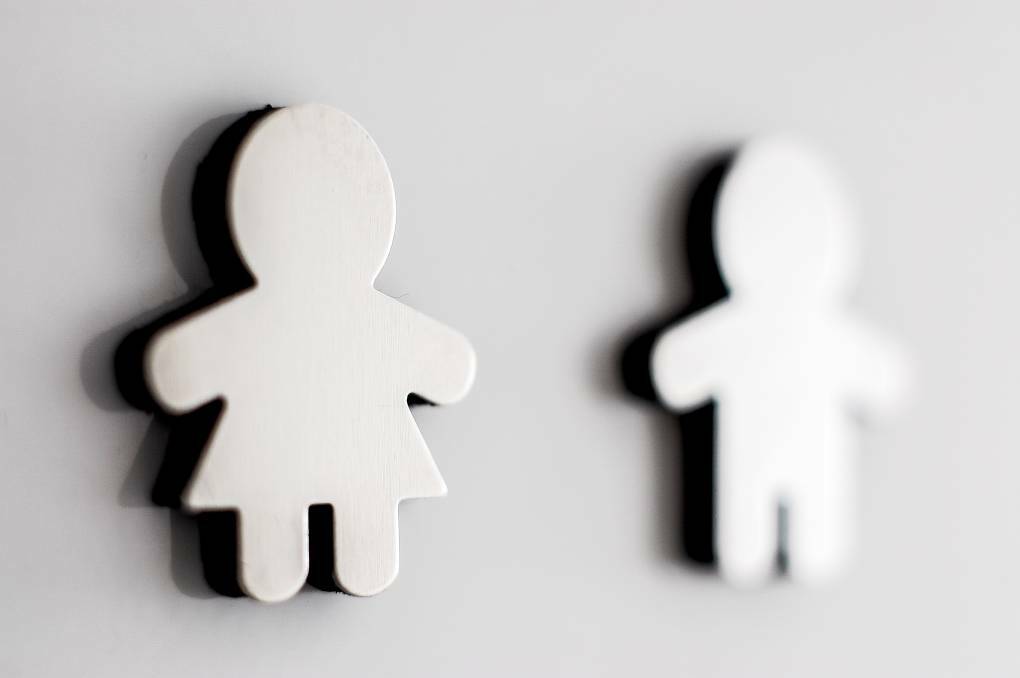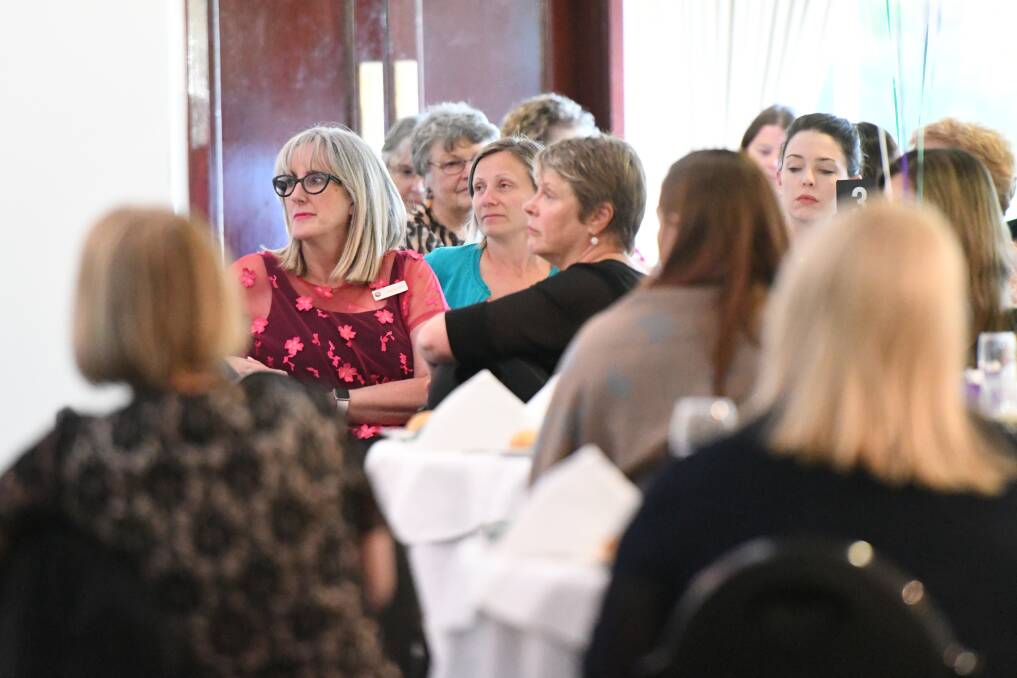
BENDIGO can boast of numerous achievements with respect to women’s advancement.
Subscribe now for unlimited access.
or signup to continue reading
But there is a great deal more to be done, and the community’s leaders are aiming high.
Barriers such as gender stereotypes and economic disadvantage were among the issues front-of-mind for the organisations and individuals that spoke with the Bendigo Advertiser.
The city today joins communities worldwide in celebrating International Women’s Day by highlighting the achievements of women, and the need to press for progress.
‘We can’t wait’
The year 2234 is about when the World Economic Forum expects the economic gender gap to close, based on the current rate of change.
“I think that’s unacceptable, don’t you?” Women’s Health Loddon Mallee executive officer Tricia Currie said.
“We can't keep doing the same and expecting a different outcome.”
Hers was a call for collaboration – for the community to gather and consider the contributions people could make as individuals, as members of groups and of workplaces to strive towards gender parity and equity.
“We can’t wait those 217 years,” Ms Currie said.
“Women are telling us how important it is that women stand strong together, that we listen and act for all women so we leave no woman behind, that we seek to encourage and speak up for those who can’t.
“Our press for progress is to strive for gender equity so not only can we realise the potential and aspirations of women, but we enable women to be their authentic selves.”
A time to show leadership
To Community Leadership Loddon Murray chief executive Leah Sertori, the ‘#pressforprogress’ theme implies pushing ourselves outside of our comfort zones to achieve critical wins toward gender equity.
“CLLM’s vision for vibrant and sustainable communities can only be achieved where both genders influence the culture of leadership, work and responsibility in family life,” Ms Sertori said.
The organisation is promoting action to ensure both sexes retire with equal savings, that men and women share responsibility for caring for children and elderly members of their families, and that the nation has a unified and powerful response to end violence against women.
“It also means creating space for women to lead authentically, from their areas of strength, rather than modifying their leadership style to conform to the status quo,” Ms Sertori said.
“CLLM’s work across 10 local government areas is making headway on these issues.”
Central Victoria in the spotlight
As the region celebrates International Women’s Day, some of its strongest advocates for the prevention of violence against women will be packing their bags.
Annie North Women’s Refuge chief executive Julie Oberin will lead the Australian Women Against Violence Alliance delegation to the 62nd Session of the United Nations Commission on the Status of Women meeting in New York City.
Centre for Non-Violence chief executive Margaret Augerinos is part of the delegation.
Empowerment of rural women and girls and women’s participation in and access to the media are among the key themes to be discussed at the meeting.
“We will be showcasing the work of the Centre for Non Violence and Annie North Women’s Refuge as two innovative best practice services operating in a regional area supporting women from regional and rural areas,” Ms Oberin said.
“We will talk about the challenges as well as the opportunities and strengths of working in a regional setting, as well as some of the barriers women in regional and rural areas face when they experience family violence.
“Margaret and I will also be presenting a session on the challenges family violence workers face working in regional, rural and remote settings when they live in the same community as the victim/survivors and the perpetrators.”
She said the International Women’s Day theme, #pressforprogress, was an important message.
“We should never give up on our goal to achieve gender equality and preventing what is an epidemic of violence against women,” Ms Oberin said.
“Sometimes it is easy to become disheartened when we see more women and children murdered or seriously harmed by those who are supposed to love, respect and protect them.
“I know when our new refuge facility is finished shortly, women and children will quickly fill it.”
However, Ms Oberin said she could also see change happening.
More people were talking about gender equity and the prevention of violence against women, and governments were taking notice.
“The Victorian government is still in the midst of rolling out all of the recommendations from the Royal Commission into Family Violence,” Ms Oberin said.
“The front line workforces are being strengthened along with legislation, and so too are the attitudes throughout our community about not tolerating violent and abusive behaviour and making a stand.
“It will take all of us to make this social change where it becomes no longer normal and relatively acceptable to put down, abuse or harm the women and children in your family.”
Encouraging discussion
The City of Greater Bendigo will today host a forum to discuss gender equity.
“We're thinking about what it means for us as an organisation, but also what it means for the community and how women and men experience life differently and what we can do to build equality,” city health and wellbeing director Vicky Mason said.
“The idea of [the forum] is to engage with people. What can we all do to improve gender equity and how can we work together?”
The city is in the process of developing a gender equity strategy for the municipality.
A day for celebration, appreciation
Women represent Bendigo and its surrounds in all levels of government.
“We now have gender inequity in our council and management structure – we have more women than men,” Ms Mason said.
But Centre for Non-Violence acting chief executive Robyn Trainor said there was scope for greater appreciation of women’s efforts within the community.
“A key thing about International Women’s Day is the celebration and recognition of women in our community who are often going above and beyond, and sometimes in non-stereotypical roles, carrying a burden of responsibility, and they go unrecognised in the community,” she said.
“Women often aren't great at promoting themselves or other women and recognising the key role women play in creating that more equal society.”
She highlighted the importance of role modelling in influencing aspirations and expectations.
Addressing rigid gender stereotypes, attitudes and beliefs; promoting women in leadership and challenging support for male dominance and aggression were all known measures to prevent violence against women and children.
Ms Trainor said an awareness of the dominant male gender underlying advertising, media representation and the stereotypes that existed within the community were important steps in pressing for progress.
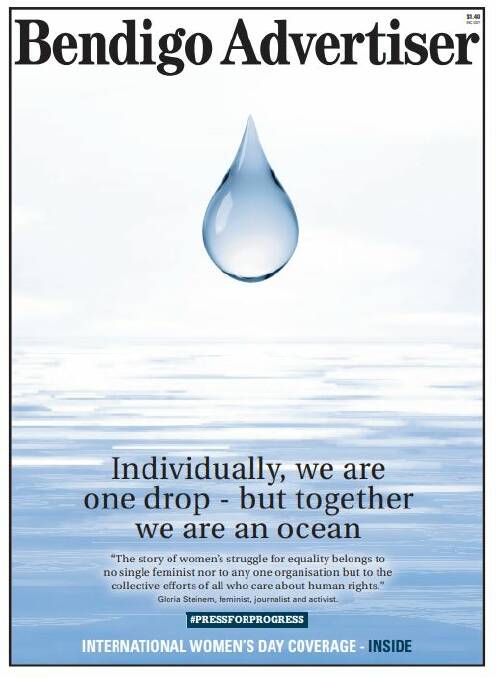
Challenging the status quo
Adam Fennessy has a favourite quote when discussing gender equity: “Progress is not success”.
He attributes it to Anne Summers, the author of The Misogyny Factor.
“There are some really good signs of progress and we’ve got to keep up the effort,” he said.
As a Male Champion of Change, Mr Fennessy said it was important for women and men to be engaged in conversations about gender equity.
“For some men it’s actually a big opportunity,” he said.
The sooner rigid gender stereotypes became a thing of the past, the freer Mr Fennessy said people would be to express themselves authentically.
“In any change process, including as we move to a more gender-balanced society, there is going to be pushback,” Mr Fennessy said.
He expected there would be men and women who might not be comfortable with the conversations taking place, and who might need to change their behaviour.
“It’s about treating each other with more respect, rather than fixing women or, indeed, fixing men,” Mr Fennessy said.
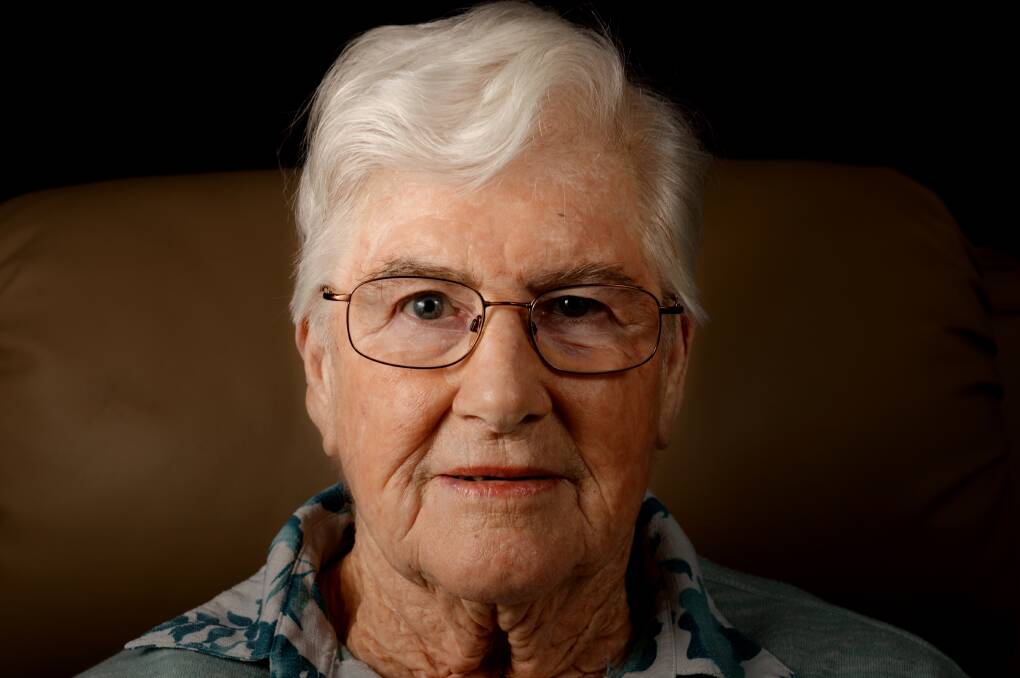
‘I just ignored them’
MOLLY O’Sullivan has never had much time for people who considered women less than equal to any task.
And, having run a 970-acre farm at Marong by herself for almost 20 years, she has encountered her share of “upstarts”.
She said the male farmers barely acknowledged her the first time she went to the saleyards after her husband Kevin died, 36 years ago.
“I just ignored them. I knew what I was doing,” Mrs O’Sullivan said.
Some market-topping sheep soon changed their behaviour and earned the farmer the respect of her peers.
The same farmers who had initially turned their backs towards Mrs O’Sullivan and ignored her were congratulating her.
Even all these years later, the 78-year-old cracks a smile as she thinks of the radical change in the farmers’ responses.
It’s evident she took some pride in having proven herself more than capable of holding her own in a male-dominated industry.
Not that she had purposely been trying to show the other farmers up. Mrs O’Sullivan was just was good at what she did.
“The world’s at your feet if you want to work,” she said.
She grew up on a farm about six miles out of Axedale.
Mrs O’Sullivan said her family owned less than 500 acres of land, which was home to sheep, cows, pigs and other animals.
Her sex had no bearing on how she was treated on the farm. She was expected to be across everything – “from butcher to worker to candlestick maker” - and she was.
Mrs O’Sullivan met her husband, Kevin, at a ball in the town hall when she was about 18 years old.
The couple was married at the Sacred Heart Cathedral in Bendigo during the January of 1963.
They became parents to two daughters, who were aged in their teens when their father died of cancer.
Mr O’Sullivan was in his 50s when he passed.
There was no doubt in Mrs O’Sullivan’s mind that she would keep their farm at Marong.
“I just automatically worked it,” she said.
“It was not unusual for a woman to run or work a farm.”
About 41 per cent of the 15,755 people working in agriculture in Australia last year were female, according to data from the Workplace Gender Equality Agency.
Women working full-time in the industry earned 21.3 per cent less than men in the industry.
A 2012 report by the Australian Bureau of Statistics attributed the traditionally masculine image of the farmer to the fact men accounted for 72 per cent of farmers in Australia about that time.
There were 44,700 women in the Australian farming workforce in 2011.
A 2017 summary of Australia’s agricultural sector stated there were 216,100 men and 88,100 women employed in the Australian farm sector.
“The contribution that women make to the nation’s farm sector is not simply measured by the number who report farming as their main job,” the Australian Bureau of Statistics noted in 2012.
“It is also necessary to take into account the many other women who live in families where their partner is a farmer.”
About 35,100 women had a job outside the farm when the report was published. and more than half of them supported the farm through other means including unpaid domestic work.
About 79 per cent of the 16,000 women in farming families who were not employed in paid work in 2011 did at least 15 hours of unpaid domestic work per week.
Mrs O’Sullivan said some of her neighbours were ‘very kind’ and would help if she needed assistance.
She said any negative responses people had to the idea of a woman running a farm ‘gradually settled down’ once it became evident the property was in safe hands.
“I did what I did and that was that,” she said.
Her farming expertise made her a valuable member of the Bendigo Agricultural Show Society for 30 years.
She ran the cattle section for many of those years, and was also involved in the sheep dog sections.
“I supplied the sheep for it quite often,” Mrs O’Sullivan said.
The many and varied artworks in her room at Mercy Health Bethlehem Home for the Aged attest to her skill at crafts often seen in ‘women’s’ sections at many agricultural shows.
But that wasn’t where her skills were needed, when it came to the show committee.
Her interests defy rigid gender stereotypes, ranging from sports such as golf and tennis to dressmaking and needlework.
“I played golf for many years,” Mrs O’Sullivan said.
Her longstanding belief has been that women can do anything men can do.
“It’s at your feet if you want to do it,” Mrs O’Sullivan said.
And she has raised her two daughters with that ethos.
One of her daughters is working as a teacher.
The other has continued the family tradition of farming, although she is no longer living in the region.
“They learnt the same was as I did,” Mrs O’Sullivan said.
Asked for her thoughts on the theme of International Women’s Day this year, #pressforprogress, Mrs O’Sullivan was supportive.
“If you don’t try to get progress you’re not going to get far,” she said.
She said there was no point in society continuing to behave as it did decades ago.
“Everything changes,” Mrs O’Sullivan said.
“There’s no point going backwards. We’ve got to go forwards.”
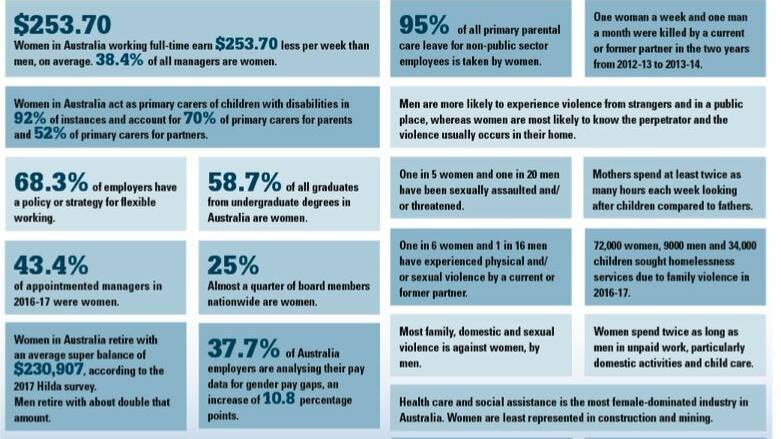
Where to seek help
If you or someone you know is affected by family violence or sexual assault, call safe steps on 1800 015 188 or 1800RESPECT on 1800 737 732.
In Bendigo and central Victoria, support is available from the Centre for Non-Violence, which can be reached on 5430 3000 or free call within the Bendigo area on 1800 884 292.
Bendigo and District Aboriginal Co-operative provides support to Aboriginal women experiencing family violence; the organisation’s phone number is 5442 4947.
Culturally sensitive and generalist counselling, with interpreters as needed, is available from Bendigo Community Health Services on 5430 0500.
Men looking to end their violent or abusive behaviour can call the Men’s Referral Service on 1300 766 491.
In an emergency, call triple zero.


